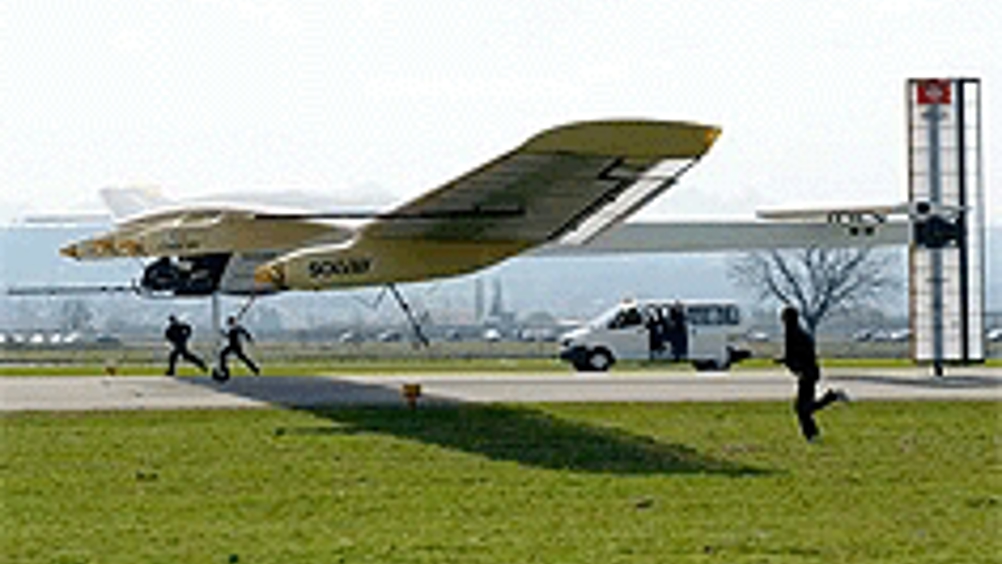Solar plane completes test flight
Solar Impulse HB-SIA, an emissions-free aircraft that draws its power from solar energy, has made its first test flight, climbing 1,200m after take-off from Payerne airfield, Switzerland.

During the 87-minute flight Solar Impulse test pilot Markus Scherdel familiarised himself with the prototype’s flight behaviour and performed the initial flight exercises before landing.
Scherdel said: ‘The HB-SIA behaved just as the flight simulator told us. Despite its immense size and feather weight, the aircraft’s controllability matches our expectations. This first mission was the most risky phase of the entire project. Never has an airplane as large and light ever flown before.’
Bertrand Piccard, chairman at Solar Impulse, added: ‘We still have a long way to go until the night flights and an even longer way before flying round the world.
‘Our future depends on our ability to convert rapidly to the use of renewable energies. Solar Impulse is intended to demonstrate what can be done already today by using these energies and applying new technologies that can save natural resources.’
Designed to fly night and day, the aircraft - described in detail here - is 21.85m long and combines a lightweight 1,600kg structure with a 63.4m wingspan. Its wings are covered in a thin sheet of solar cells that convert the sun’s rays into electricity that drives the machine’s engines.
Register now to continue reading
Thanks for visiting The Engineer. You’ve now reached your monthly limit of news stories. Register for free to unlock unlimited access to all of our news coverage, as well as premium content including opinion, in-depth features and special reports.
Benefits of registering
-
In-depth insights and coverage of key emerging trends
-
Unrestricted access to special reports throughout the year
-
Daily technology news delivered straight to your inbox










Water Sector Talent Exodus Could Cripple The Sector
Maybe if things are essential for the running of a country and we want to pay a fair price we should be running these utilities on a not for profit...